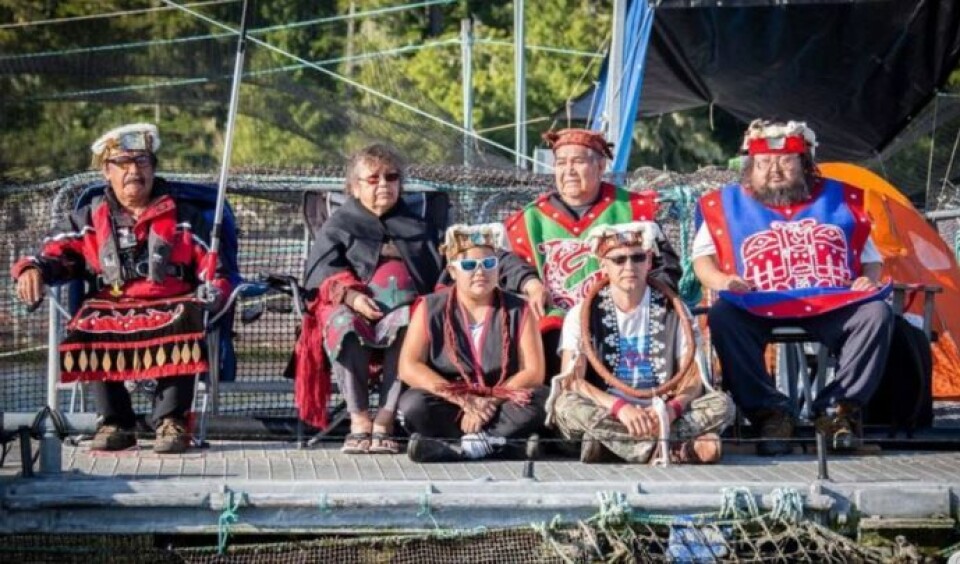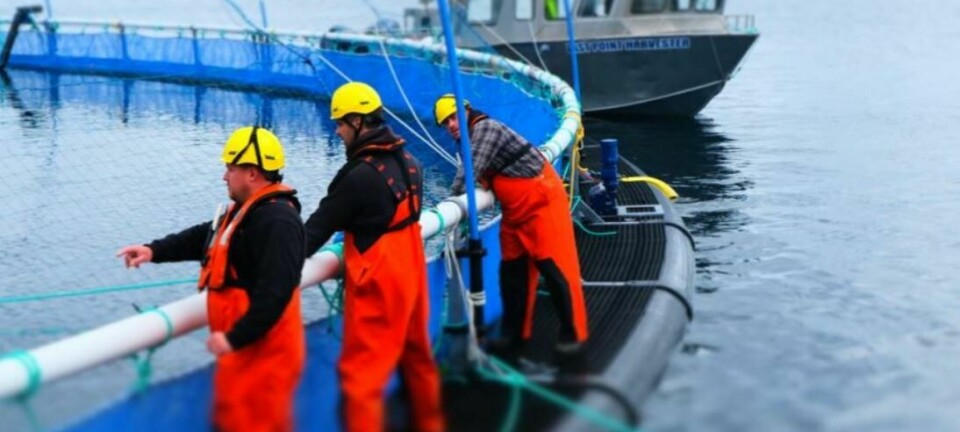
First Nation ‘misinterpreting science’ to block smolts
Marine Harvest Canada has said it will oppose a legal move by the ‘Namgis First Nation to prevent it transferring smolts from its freshwater hatchery to its sea farm at Swanson Island on Canada’s west coast.
And it has accused the ‘Namgis of misinterpreting science in its legal bid, which it said attempts to “interrupt our business and put people out of work, some of them of Fist Nations heritage”.
Earlier this week the ‘Namgis revealed that on March 6 it had filed a court application seeking a judicial review of the Minister of Fisheries and Oceans’ (DFO’s) policy not to test farmed Atlantic salmon for the blood virus, piscine reovirus (PRV), prior to transferring smolts from Marine Harvest Swanson Island farm in ‘Namgis territory.
On March 9, ‘Namgis filed a motion for an injunction to prevent the Minister from issuing a licence to transfer the smolts without first testing for the blood virus PRV, pending resolution of the judicial review.
Marine Harvest said it will defend the lawfulness of DFO’s regulatory framework for issuing transfer licences.
‘Respectful discussions’
“We have tried many times to engage ‘Namgis leadership in respectful discussions about our business generally and this year’s tenure renewal specifically, without success,” said MH Canada managing director Vincent Erenst. “We are open to discussing all options, including potentially relocating some of our farms.
“It is concerning that the ‘Namgis are resorting to legal action rather than discussion, and misinterpreting what science tells us about PRV as the basis of a legal challenge that attempts to interrupt our business and put people out of work, some of them of First Nations heritage.”
Erenst added that despite scientific findings that the PRV virus is ubiquitous and occurs naturally in many ocean fish, out of caution the company did test the smolts it is transferring for PRV, and found they do not have the virus. PRV is not listed by DFO as a disease or pathogen of regional, national, or international concern. He said that as required by the transfer licence, the salmon destined for Swanson farm have recently been screened for health by third-party laboratories and confirmed disease-free and healthy.
Tenure renewal
MH Canada said Swanson Island farm had been operating for 30 years with all regulatory and permit requirements in place. During this time the tenure permit had been renewed several times after Crown (government) consultation with local First Nations. Application for renewal of the Swanson Island tenure (expiring June 2018) is currently in process and again includes Crown consultation with the ‘Namgis First Nation.
The company said it had a track record of collaboration with First Nation partners – with some agreements dating back 20 years. It added that it operates within the traditional territories of 24 First Nations and has formal agreements with 15 of these Nations and eight First Nation-owned businesses. Approximately 20 per cent of its workforce is of First Nations heritage.
It said the Marine Harvest farms up for tenure renewal in June provide 150 direct and 150 indirect jobs.
Site occupied
MH Canada said a ‘Namgis press release on March 13 incorrectly states that a court ruling “confirmed the Minister of Fisheries and Ocean is prohibited from issuing licenses to transfer fish infected with PRV”. It added: “The 2015 Federal Court Order (Morton V. Canada) did not make this ruling. The Court chose not to rule as to whether fish that are PRV positive should be transferred and did not arbitrate on the PRV/HSMI debate.”
Last year protesters from ‘Namgis and elsewhere occupied the Swanson Island site for about a month from late August, before leaving and continuing to monitor operations from nearby cabins.
Marine Harvest had to get an injunction to remove protesters at another site, Midsummer Island.
At the time of leaving the Swanson site, ‘Namgis protester Ernest Alfred said the group had left to allow Marine Harvest to take its fish out, but didn’t want to see the site restocked.
“We have been clear that no more Atlantic salmon are to be brought in to these farms,” he said. “There is going to be a huge response if they try to bring juvenile salmon here. Our members are prepared to be charged.”






















































